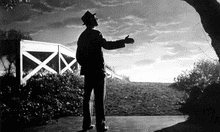Hearing voices is not only common, but it turns out to be a rich and underexplored area of study. For a thought-provoking set of articles on the phenomenon, head to our Inner Voices series, where you’ll find a scientific exploration of talking to ourselves, a survey on how authors find their voices, why hearing voices was central to Dickens’s technique and the different sorts of voice-hearing described by Hilary Mantel and Virginia Woolf, among other pieces.
As important as the voices in writers’ heads are those that are heard by readers. So on a recent open thread, we asked you how you experienced characters when reading – specifically, how you heard their voices (if indeed you did). Your answers were fascinating and amazingly diverse. Here is a selection of your contributions.
Reading dialogue out loud
It’s usually early on in a story my mind seeks out a voice for a character I feel shouts out to have one. Sometimes, I will read dialogue out loud to establish it.
Without help from a writer’s description, and involuntarily, I will gradually begin to form a vague picture of each character. I suspect many of these are subconsciously based on characters I’ve seen on TV. At times, they will be based on people I’m acquainted with, or characters in the news and screen personalities.
I find it very easy to imagine the voices of characters, which probably has something to do with writing myself. All my characters develop voices and accents very early on, as it helps give me a deeper insight into how they will respond to situations that inevitably form the plot. These voices are very vivid indeed. –BryanHemming
Narrator voices – of different kinds
I’m hearing a narrator reading the book to me. It’s the same no matter if I’m reading in German or English. Since I started to read more English books the voice appeared. It was not there when I had more difficulties understanding the meaning. – Petra Breunig
I always hear the voices of characters in books, and if I can’t, it’s usually because I’m not that into the book. I sometimes get other sensations, especially if the author describes a place well, smells, sounds, the feel of certain fabrics, atmosphere, like cold, heat, mugginess. A good book can get all the senses going. –Mel Davies
The importance of accents
I always read out dialogue in my head when I’m reading Irvine Welsh novels – I’m English, and it’s somehow much easier to understand what the hell they’re saying when I am ‘listening’ to them in this way. – markthemovieman
I am a very slow reader of novels because, I think, I hear the dialogue in real time. Each character tends to get an accent, and that’s more specific as I get into a book. I read a lot to my kids when they were younger, which may be connected. –TerryMarx
I hear the voices of the characters as they speak. Not always in the dialect or accent that they may be described as using. However, when I’m writing my own fiction I do hear their differences in pronunciation, usage, etc. –MakeMPsOwnUp
Connecting voice and image
If I have a visual image in my head, the voice is connected to that image. For example if a male character is “seen” by me as a big fella, he has a deep voice. Someone I deem to be an older woman has no squeaky girly voice. Visual impacts are very strong for me and I reject a movie immediately if the actors don’t represent my mental image.
Some books are stronger than others. I personally reckon the reason the books of Stephan King never really translated to the screen, is because the characters he described touched many parts of us. One trait stronger than the other. And this made them likeable to us, despite them not necessarily being the nicest of people. But if you focus on another trait as a film maker, you lose many readers. –SybilSanderson
The only time I can recall this happening, and it was vivid, was after I had read Peanuts, with Charlie Brown. I’d initially discovered it in newspaper cartoon strip form before going on to buy the book versions, which were just the collected originals. I knew all the characters, from Charlie, Linus, Lucy, Snoopy (who did not talk because he was a dog, he only thought), Pigpen et al. I read them all.
Then the cartoons arrived animated on TV and I remember shouting at the screen “THAT’S NOT THEIR VOICES!” I had such a clear idea in my head what they sounded like, I couldn’t watch the TV version. –nationwide

How hearing difficulties affect the experience
I do it to a certain extent. I am deafened and can hear very little.So I am used to filling in the gaps when lip reading or using subtitles to watch dvds and TV – remembering where I can from when I could hear, I also have auditory hallucinations – I know I can’t hear a tap running or leaves rustling in the wind without my brain filling in the sound. I find I am “hearing” the voices of actors and actresses too young for me to have actually heard and also, as the article discusses, finding voices for characters in books – especially those I have read more than once. I cannot recall doing this when I could hear however. –Themardler
Not hearing much
I generally just hear my own internal voice. I can’t simulate accents in my head without phonetic spelling. I don’t see characters clearly either. Generally I think I assign a few vague traits to them, and draw backgrounds from memory. –Tom Jubert
I don’t hear the voice and only have a weak visual sense of the characters, or indeed settings - more a “wash” sense or atmospheric. For example, an Atwood novel like Cat’s Eye might be set somewhere pretty mundane but I feel a profound atmospheric skew due to the strangeness of the novel, like the world described is a few degrees off kilter relative to our own. –viriditan
Hearing the author
If I’ve heard the author speak, I actually hear them reading it to me in my head. And, also, the main character in my head will look like the author, even if they’re of a different gender... –samofthepryce
I read a book written by someone I know, and heard his voice the whole way through. It was a good book, but he speaks quite slowly, and as I read I had to keep waiting for him to catch up! –DrHeadgear2
I “hear” the book I am reading as if it is being read to me by the author. If I don’t know what the author sounds like I imagine the voice from what I know of their biography. When I read Midnight’s Children I heard the voice of Salman Rushdie, which I knew from interviews he had given. I was disappointed when someone bought me the audio version to find it being read by someone with an Indian accent. I only managed to listen to one chapter. It wasn’t the sound of the book for me. –morememoreme
A lot of readers emphasised that poetry is a bit different than prose. For instance, campasyoulike said:
You have to hear poetry, it’s in real time. Usually, and especially in the case of TS Eliot, hearing the poet’s voice will give you greater insight (if you hear it once, recorded, you hear it all the time when you read). Reading novels like that would be a bit long though.
Not hearing but seeing
I’m never conscious of hearing a character’s voice, but I often visualise a character’s appearance, from cues in the text. That is why, for me, film adaptations of much loved books are often a disappointment, when totally bizarre casting choices are made. –Gizzit
I visualize very well when reading. The more enjoyable the story, the stronger it becomes. In a series, especially those extended ones, the vices, images, and “reality” become stronger until there is as much going on in my head as there is on the page. Yes, I did have an imaginary friend as the oldest child who was an only until age 7. My children and grandchildren have followed suit as well. I frequently hold conversations with myself – I look at it as a means of working through decisions and stress. I teach literature and read voraciously. –Denise Cuevas
But that’s a whole other story. We’ll be tackling the visual side of reading in the books blog soon. As always, feel free to add your own experience below the line.






Comments (…)
Sign in or create your Guardian account to join the discussion